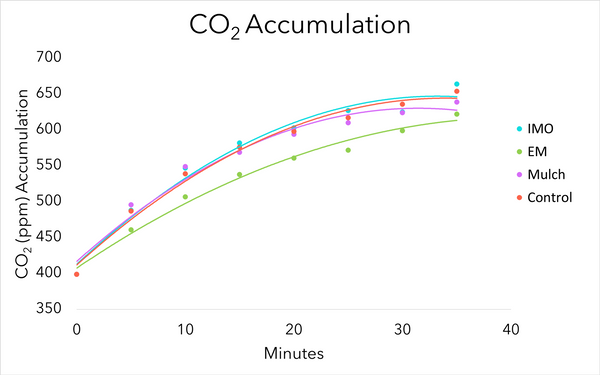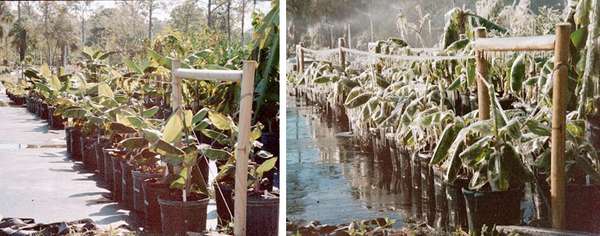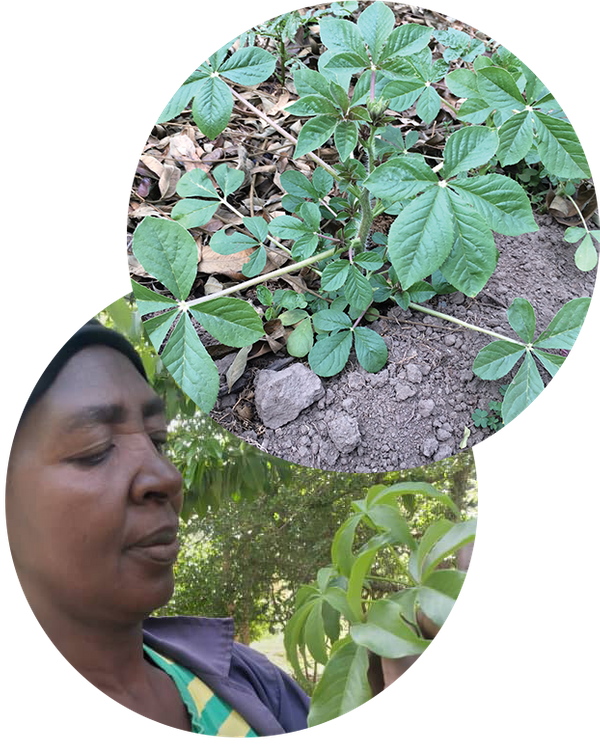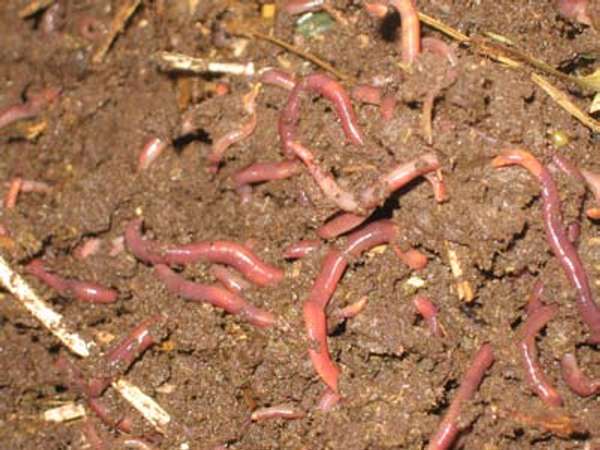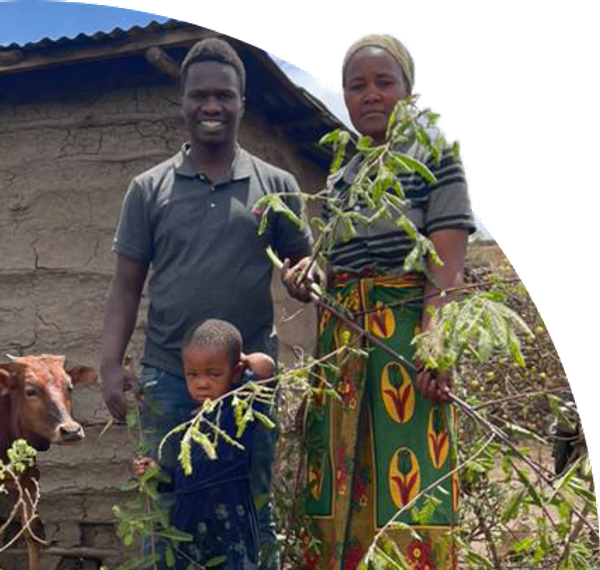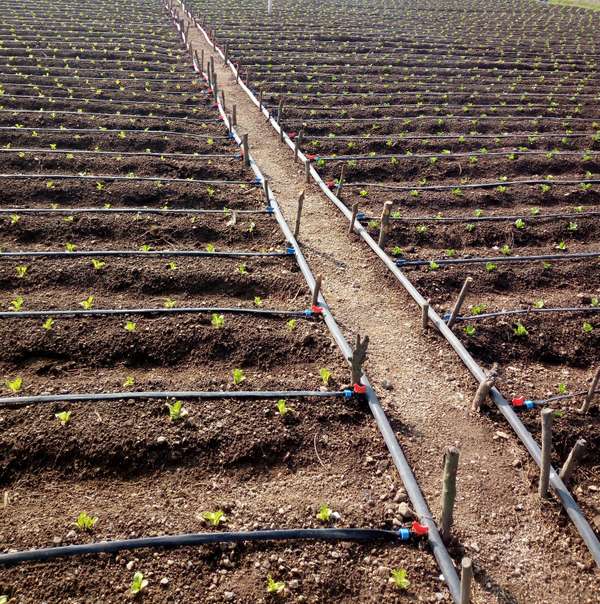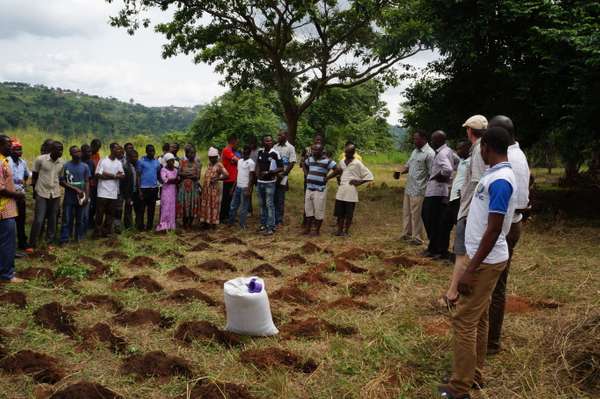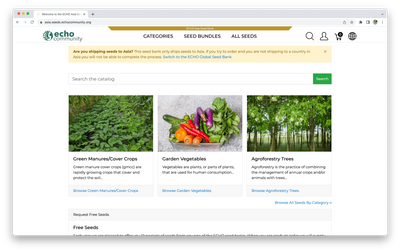ECHOcommunity更新
Natural Farming Research Note Now Available! 2023-02-14
Between 2017 and 2018, a trial was conducted comparing IMO, EM, mulch, and no mulch on a raised bed system on the ECHO Florida campus. Each of these main treatments was evaluated with and without NPK fertilizer in a split-plot, randomized complete block design. Less cotton was decomposed in the soil of the control treatment than soil of the EM soil drench treatment (P=0.0542) suggesting lower rates of microbial activity. Fertilized split treatments produced more grams of edible product than unfertilized split treatments (P<0.05). This study was conducted in a sandy soil with low organic matter. IMO or EM products may need to be “stepped up” to more stable carbon sources such as bran, compost, or manure before being utilized in soils low in organic matter.
From ECHO's Farm: Freeze Protection 2023-02-07
Every year in the winter months of December to March at ECHO Florida, we enter the potential for frost and freeze events. While our sub-tropical climate allows us to grow most tropical plants, a frost or freeze event could mean serious impacts for future yields or even the survival of more sensitive plants. Thankfully there are several strategies we employ to help protect the farm on those cold nights.
Pre-event Preparations
Two to three days before a cold weather event, it is important to make sure your soil moisture level is at or near field capacity. Wet soil can hold more heat than dry soil, therefore when we keep our soil wet, we maximize the amount of heat we can store. While impractical on a large scale, another method to increase soil temperatures is to pull back mulch from the base of the plants. This allows more solar radiation to enter the soil, thereby storing more heat. This is most effective for annuals where the crop is not covering the soil. The stored heat is then released during the cold night, creating a microclimate near the plant. This can be just enough to avoid any frost, especially when this strategy is used in conjunction with frost cloth.
Frost Cloth
Before sundown on the evening of a frost event, we cover plants that are cold-sensitive with frost cloth. Frost cloth acts as a blanket, trapping heat that is released from the soil. It is important to keep the frost cloth from directly touching the plant leaves, as any leaves touching the frost cloth can be damaged by the cold. It is also important that the frost cloth extends to the ground on all sides, as the heat will escape if there are openings. Weighing down the frost cloth and securing it with clips is a must if you want the cloth to stay in place all night, especially in windy conditions.
Irrigation
On nights when freezing temperatures occur, and weather conditions permit, we utilize our overhead and micro-spray irrigation systems to encase plants in ice. While this method may seem counterintuitive, ice encasement can be a very effective method of freeze protection. This method works provided we continually introduce more water to the plant. As water turns from liquid to solid, it must release heat. This small amount of heat release is just enough to maintain a liquid water layer between the plant leaf surface and the ice. The irrigation system must be kept on until all the ice has melted off in the morning. A good understanding of psychrometrics and a reliable irrigation system is important to prevent damage to the plants.
A combination of these methods makes it possible for us to weather frost and freeze events with minimal damage. While not covered here, other management strategies such as farm design, protected agriculture, plant selection, and crop growth stages should be taken into consideration when growing in areas where cold weather conditions could adversely affect your crops. For more information on cold protection in agriculture, check out these helpful resources: http://edn.link/freezeprotection
East Africa Note 9 Now Available! 2023-01-31
In this issue:
Food from the Wild
Erwin Kinsey
Join the Conversation about Wild Foods
Excerpt:
Traditionally, the Hadzabe, eat these plants uncooked or with minimal processing. Occasionally, wild foods are roasted over open fires, i.e., without pans or skillets but mostly raw with minimum processing. This has changed recently to some extent, depending on preferences within family clusters and their proximity to outside influence, but overall their approach to food preparation and consumption leaves a very light footprint on the earth. They continue to kill only what game they can consume, and are accustomed to sharing all things without hoarding or sense of ownership.
Join the Conversation: Worm castings and compost teas 2023-01-17
Have you ever tried or are interested in trying worm or compost tea in your garden? Network member Mike is interested in trying worm or compost tea but has some questions for you!
For more information about how to vermicompost, visit this link: http://edn.link/tn66
For more information about how to make compost tea, visit this link: http://edn.link/jkjnh4
ECHO East Africa Symposium on Sustainable Agriculture and Appropriate Technologies 2023-01-12
This 7th Biennial ECHO East Africa Symposium will provide a network and training opportunity for those involved in alleviating hunger and poverty in East Africa. Three mornings of plenary sessions featuring knowledgeable and experienced speakers will be followed by afternoon workshops and discussion groups led by regional agricultural development workers and experts. This event will enable three days of sharing by presentations, some practical sessions, an appropriate technology fair, and last day field trips.
February 21-23, 2023 in Arusha, Tanzania Register Today
Topics include agroecology, agroforestry, conservation agriculture, appropriate technologies, climate-smart agriculture, agricultural economics, and more!
EDN #158 Now Available 2023-01-06
In this issue:
- Is Drip Irrigation Right for Me?
- Recap of Options for Storing Grains
- Echoes from our Network: Hermetic Sealing in Haiti
- From ECHO's Seed Bank: 'Starfighter' Lettuce
- Books, Websites, and Other Resources: Tool for Agroecology Performance Evaluation (TAPE)
Is Drip Irrigation Right for Me?
Robert Walle
Excerpt:
With water delivered through drip tape, drip irrigation is best suited for planting in rows. In low-resource contexts, or with irrigation kits, you will not have much choice in drip tape emitters. There may be only one spacing of emitters available. This could be a problem where farmers and gardeners are not accustomed to planting in rows or being constrained to uniform plant spacing. While drip irrigation conserves water, success requires consistency. The system needs to be regularly maintained and checked for leaks.
More yield with fewer inputs: Experiences from West Africa 2023-01-03
In December 2018, Mamadou Pierre Nabié, father of 4, participated in an ECHO West Africa training on Foundations for Farming, compost, and bioliquid fertilizer. He claims that this training was a “gold mine” of information that has significantly impacted his life personally and his community in Kpai, Burkina Faso. Nabié shared, “As I have applied this new knowledge, my production level has literally tripled.” On the 1.5 hectares (4 acres) he was given to farm, he used to spend 125,000 CFA (250 USD) on average for plowing and chemical fertilizers. This usually produced about 600 kg of corn (about 6 months’ worth of food). After applying what he learned in the training during his first year, he was able to produce 1,800 kg of corn on the same farmland (or 18 months’ worth of food)– with less than 10,000 CFA (20 USD) in expenditures. The following year, the landowners, took away his land and gave him another piece of land that was undesirable to farm. That year, he produced 1,200 kg of corn. This year, due to the high costs of chemical fertilizers, many community members have come to him requesting training in making compost and bioliquid fertilizer.
Christmas Greetings 2022-12-20
Greetings and Merry Christmas to all of our ECHOcommunity members! I pray and trust that this finds you well and that your ministry, lives, and communities are healthy and experiencing the joy of Christmas.
It has been a whirlwind year for me personally, as well as for ECHO and I am sure you have also experienced some of those joys and challenges as we are slowly moving out of the COVID-19 pandemic and grappling with the realities of what it means to have a “new normal.” Additionally, some of you are attempting to build back better after hurricanes, landslides, earthquakes, and other disasters, and our hearts go out to you.
Through it all ECHO’s commitment to you, our valued network members, remains steadfast. It is our great joy to equip and empower you with verified, practical, and useful options so that you can equip and empower the poor to improve their food security, health, and livelihoods. I am so thankful for this amazing and diverse network that you are a part of and love hearing your stories (your challenges, successes, failures, needs, and opportunities) and learning with you. With your help, we will continue to co-create useful and contextualized options to help us all to be more successful in our work.
Please reach out to us regularly and also to one another via this platform.
Merry Christmas and may God bless the work of your hearts, hands, and minds,
Abram J. Bicksler, Ph.D.
President/CEO
ECHO Inc.
2022 ECHO International Agriculture Conference Presentations 2022-12-14
The 200 attendees of the 29th annual ECHO International Agriculture Conference (November 15-17, 2022) benefited from three full days of morning plenaries, afternoon sessions on the ECHO Global Farm, and evening sessions covering a wide variety of topics. We were thrilled to meet back in person with many of you and benefited from the ideas and lessons that you shared.
Most of the PowerPoint shared by presenters are now available in pdf form. If you do not see a presentation listed on ECHOcommunity for a particular session, please check with us and we will share the presentation slides if we can.
Service Spotlight: ECHO Asia Seed Bank 2022-12-08
The ECHO Asia Seed Bank works to serve as a resource for development workers within Asia who wish to experiment with underutilized crops as they work to improve the lives of the poor. The seed bank maintains a collection of hard-to-find seeds that thrive under difficult growing conditions in the tropics and sub-tropics.
ECHO currently operates three seed banks worldwide and partners with many more. The seeds selected by the ECHO team in Thailand have been determined to be well-adapted for use in Asian countries. Seeds from the ECHO Asia seed bank will only be shipped to addresses in Asia. ECHOcommunity members who need seeds shipped elsewhere can use the ECHO Global seed bank.
